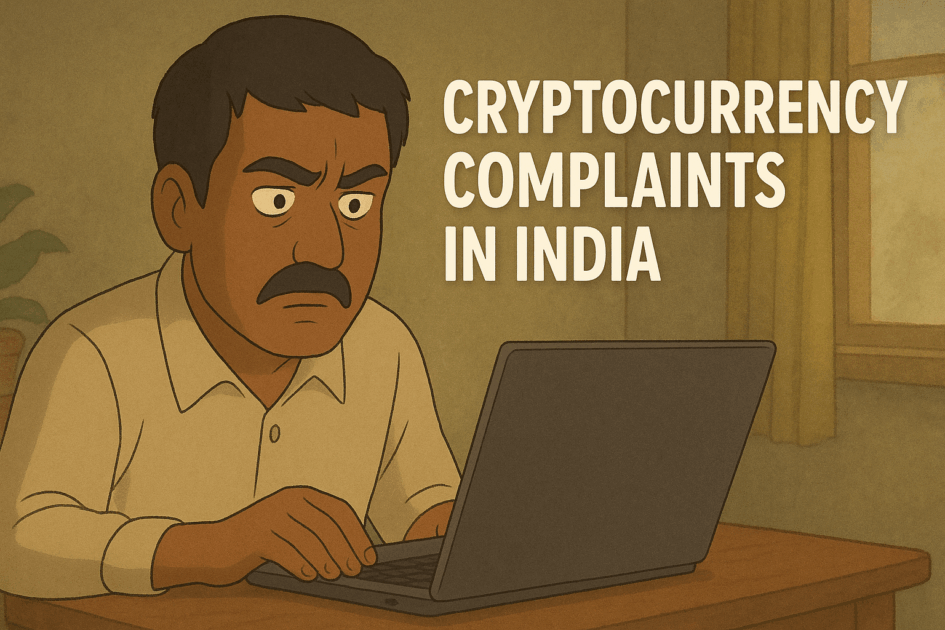Ankit joined a Telegram group that promised to double his cryptocurrency in 24 hours. He installed a crypto trading app and deposited ₹50,000 worth of Bitcoin. By the next day, both the group and his money had vanished. What to do in such cases, and what is the process of filing cryptocurrency complaints in India?
With more Indians investing in digital assets, scams, hacks, and shady exchanges are also on the rise. While recovering lost money isn’t always guaranteed, quick and proper reporting can help authorities trace fraudsters and prevent others from being cheated.
This guide explains why cryptocurrency complaints are increasing and the right way to file one in India.
How to File a Cryptocurrency Complaint in India
If you’ve been cheated in a crypto deal or faced issues with a platform, act immediately. When you get trapped in crypto scams in India, every hour counts — funds can be moved across multiple wallets and become untraceable quickly.
1. File a Cyber Crime Complaint
- Visit the Cyber Crime portal.
- Select “Report Other Cyber Crime”
- Fill in all incident details clearly, attach evidence, and submit your complaint.
- You’ll receive an acknowledgment number to track your case.
2. Lodge an FIR in the Nearest Police Station
- Visit your local cyber cell or police station.
- Carry both printed and digital copies of all your evidence.
- Explain events step-by-step to ensure accurate complaint logging.
Need help?
Register with us now and get assistance in reporting the complaint online. Our team will guide you with drafting and proper documentation of the complaint to get recovery of losses.
Documents Required to File Cryptocurrency Complaints in India
Before filing a complaint, gather all relevant evidence in one place to help authorities act faster:
- Transaction IDs (TXIDs) – Unique codes for each crypto transfer, found in wallet or exchange history.
- Wallet addresses – Both yours and the scammer’s.
- Payment proofs – Bank statements, UPI screenshots, or receipts for any fiat transfers.
- Chat or email records – Screenshots of all communication with the scammer or platform.
- Website or profile links – URLs of any sites or social media profiles involved in the scam.
Conclusion
Cryptocurrency scams are on the rise in India, and the lack of strict regulation makes it easier for fraudsters to operate.
If you’ve been a victim, reporting quickly through official channels is your best chance to help trace the fraud and protect others from similar traps.
Stay alert, keep your private keys secure, and only trade on platforms with a proven track record of safety and compliance.







